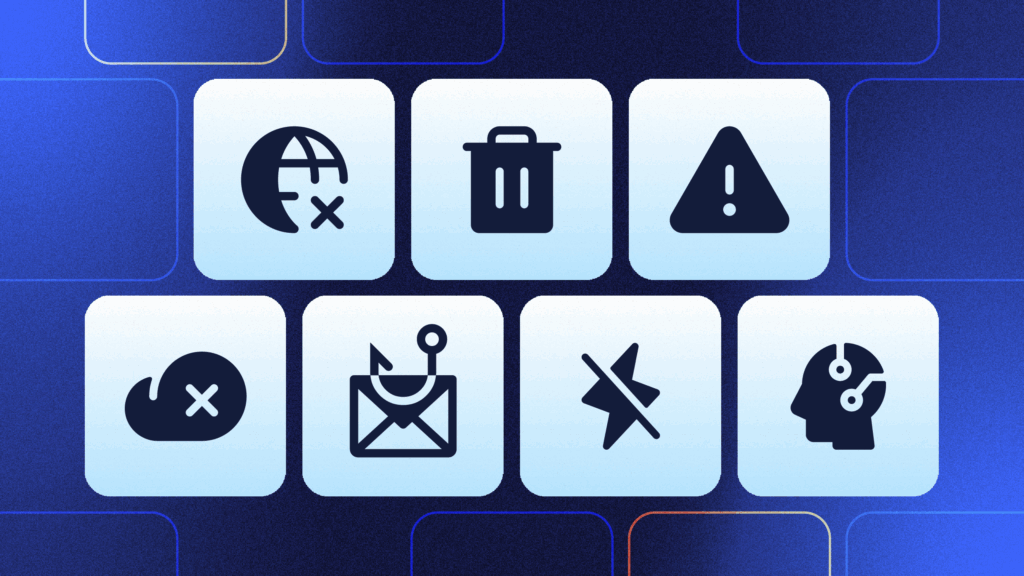Security breaches of any kind can cause disruption. Still, when financial data is involved, the consequences of a data breach are serious—both for the financial services provider and the client. Massive amounts of money can be lost, sensitive account information compromised, and both employees of the business and its customers are likely to be adversely affected.
As the systems and processes enabling our banks and financial institutions to operate become increasingly digitized, the opportunity for fraud and infiltration becomes an even more pressing issue.
The importance of backing up QuickBooks Online financial data
QuickBooks Online is the accounting software of choice for more than 29 million small businesses in the US. It’s used in just about every industry, favored for its user-friendly interface and variety of integrations.
QuickBooks Online performs platform-wide backups, but those can’t be used to restore individual account data (known as the Shared Responsibility Model, many SaaS platforms operate under this model).
SMBs use QuickBooks Online for daily accounting and bookkeeping, and accounting firms leverage the app to service multiple clients. QuickBooks Online performs platform-wide backups, but those can’t be used to restore individual account data like transactions, expenses, or reports. If any of that information were to be lost or compromised, it would be incredibly difficult and stressful to rebuild the data—not to mention the uphill battle you’d have convincing clients that they should trust you with their accounts.
Read more about what accountants need to know about safeguarding client data.
Backups increase compliance and audit readiness
For many financial professionals, backups of financial data are not a nice-to-have but a must-have.
Accountants and bookkeepers are facing increased scrutiny from regulators as finance (and related sectors) are being more frequently targeted by cybercriminals. Additionally, firms need to remain in compliance with a growing list of regulations, including FTC Safeguards, IRS 4557, NY Shield, GDPR, etc. It is no longer a convenience but a legal requirement to implement strong security measures when using cloud accounting tools to store and manage financial data, especially PII (personally identifiable information).
Backup tools for online financial data also help firms stay audit-ready. Many regulations, including SOC, require firms to prove to auditors that they are regularly backing up their clients’ sensitive data and can restore that data within an acceptable timeframe if data loss or corruption were to occur. Audit logs of when backups and restores were performed and by whom make complying with various regulations easier and faster.
What could happen?
Have you ever considered what could happen if your company lost its QuickBooks Online data?
Data loss can occur for many reasons. Here are a few examples:
- Data loss resulting from a computer system update
- Computer hardware or disc failure
- Loss of physical premises
- Employee errors
- Files or data deleted by mistake
- Malicious software (malware) or ransomware
- Injurious intent (deliberate deletion of files)
- Incompatible apps or third-party integrations
Regardless of the reason, the outcomes are the same. Data loss hurts everybody, resonating throughout the organization, dampening morale, and damaging your reputation. You could lose clients, or it might impact your business continuity altogether. You could face fines or legal consequences if Personally Identifiable Information (PII) is exposed. At the very least, it will force you to work much harder to get things back on track. Depending on the extent of the damage, some companies might not survive.
Here are some of the items at stake:
- Bank account information
- Transactions
- Payroll data, reports, and pay stubs
- Vendor account activity
- Sales data
- Aged payables
- Reports and report groups
- Budgets
- Expenses
- Invoices
Should this data be lost, you and your team would have a lot to overcome. Can you imagine all the time, effort, and resources involved in re-inputting all that data from hard copies or other sources?
Fortunately, there is a solution that helps you avoid all this. Rewind Backups for QuickBooks Online is a reliable way to maintain a continuous backup of all your files, allowing you to restore everything from individual items to attachments, expenses, reports, and more.
Backing up your QuickBooks Online data
In light of growing cybersecurity threats and the increasing complexities of doing business online, keeping your financial data secure is essential. To complement your security posture, you’ll need a comprehensive backup solution.
In a best-case scenario, you should always have three different backups, two on different types of physical media and one stored offsite (known as the 3-2-1 Model). Cloud backups are preferred for many reasons, as you’ll always have a complete copy of your files ready to restore, even if you lose your computers or physical premises.
How Rewind helps
BaaS (backup-as-a-service) apps automatically backup your files, taking the worry out of data security, allowing you and your team to focus on what you do best.
Rewind’s continuous backup solution was designed from the ground up specifically for QuickBooks Online. Since it maintains a continuous backup of all your files, you can restore a single item, including attachments, reports, and expenses, multiple items at once, or all of your files. Backups are automatically run in the background, but you can kick off a manual backup whenever you’d like. If anything should happen, your files can be restored with a few clicks, minimizing downtime and mitigating the fallout of data loss.
Whether you use QuickBooks Online for your own company or to manage multiple entities, Rewind is an affordable, reliable backup solution you shouldn’t be without. Explore the features of Rewind Backups for QuickBooks Online.



